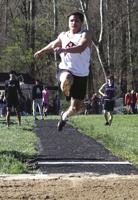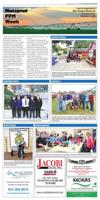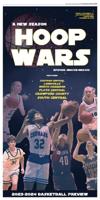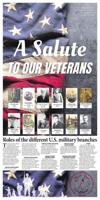Meals are available weekdays at 11:30 a.m. at the Joe Rhoads Senior Center, located at 123 S. Mulberry St. in Corydon, for those 60 and older or disabled.
The sun shined over Borden Community Park on Saturday morning as athletes from 13 class 1A and 2A schools gathered for the 10th annual Sam Sumner Invitational.
James L. (Jim) Kusek, a lifelong resident of Corydon, passed away peacefully Tuesday, March 12, 2024, of heart failure.
Lois Edna Bevins Endris, age 92, of Depauw, Ind., passed away on Tuesday, April 9, 2024, surrounded by the love of her family.
Billy J. Short, 81, of Corydon, died Friday, April 12, 2024, in Corydon.
Robert Brooks Richards, age 93, of New Salisbury, Ind., departed from this world on Wednesday, April 10, 2024.
Calvin Joseph (Red) Davis, 96, of Corydon, Ind., passed away on Monday, April 8, 2024, at Harrison Springs Health Campus near Corydon.
Mary Jane Ehalt, 92, of Georgetown, Ind., met her Lord and Savior on Sunday, April 7, 2024.
The Corydon Democrat is the paper of record for this area.



















Commented
Sorry, there are no recent results for popular commented articles.